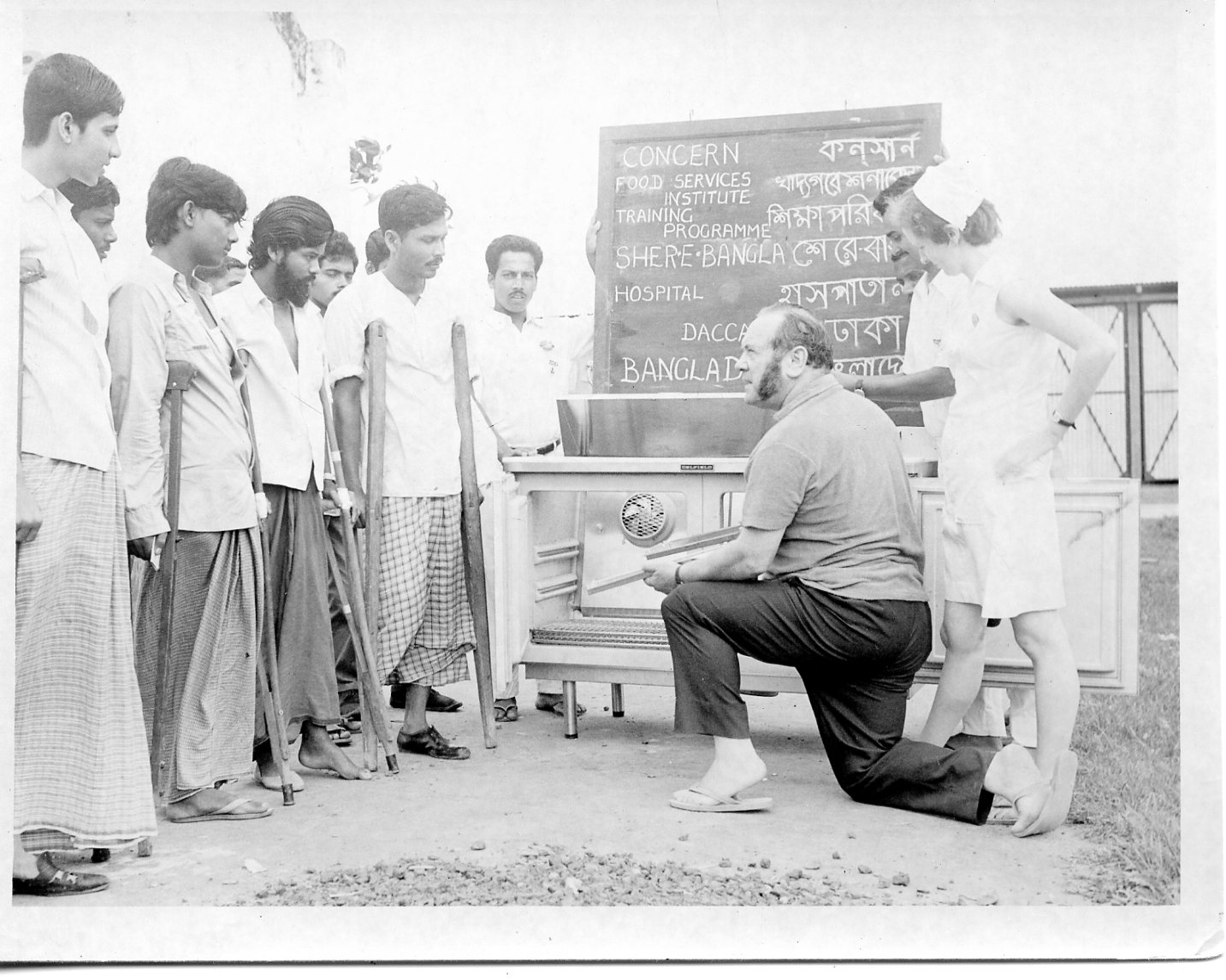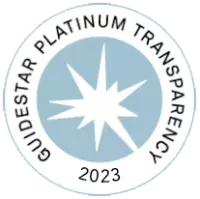Honoring Our PastPresentFuture
The story of Concern America is over 50 years in the making.
Concern America centers its work in the community, working together to transform needs into self-sufficiency in health care, clean water, education, and income opportunities.
Together with a passionate network of community health workers, artisans, teachers, water system builders, and actively engaged supporters, we provide education and training, investing in a community’s greatest resource, the people themselves, so they can shape their own realities.
1972

Bangladesh
The Beginning
Concern America began around a kitchen table in Stockton, California by two couples, the Fairbrook and O’Farrell families, who were relatives of Holy Ghost missionary priests, Fr. Raymond Kennedy, C.S.Sp., and friends of Fr. Michael Doheny, C.S.Sp. The two families were moved to support the people of Bangladesh as well as the many Bihari refugees (East Pakistanis) who were living in refugee camps.

Our very first project was gathering and sending large kitchen equipment for a cooking school and kitchen for a public hospital in Dhaka, Bangladesh. Other projects emerged in Bangladesh, including skills training for women, supplemental feeding programs for young children, education, hospital health care, agricultural production, resettlement housing, rural health centers, paramedics training, clinics, ferry construction, care for the elderly, bridge and road construction, adult literacy, and internal refugee camp assistance. Tens of thousands of people in Bangladesh were recipients of the services of these programs.

One of these projects included supporting women to produce and sell their traditional crafts with trainings in additional skills, all to support their families, eventually becoming Corr-The Jute Works. This was the first cooperative supported, marking the beginning of Concern America’s Fair Trade Craft Program.

1976

First Walk Out of Poverty
The first ‘Hunger Walk’ began in 1976 where our early supporters gathered to walk across Orange County in solidarity with those living in material poverty, raising funds to address the basic needs that many are still without: health care, clean water, and the absence of economic opportunities. This first Walk generated $1,330.
Our annual ‘Hunger Walk’ was later changed to ‘Walk Out of Poverty’ in 1997 and since then, has grown in participation, donations, and sponsors.
1977

Concern America’s First Field Volunteer
Throughout our history, Concern has sent over 300 field volunteers to support refugee aid programs, primary health care training, appropriate technology training and development, cooperative and fair-trade income-generation, and education.
The first field volunteer was Keith West, a nutritionist who served in Bangladesh back when Concern America was known as “Concern for Bangladesh”! Keith sent a moving video with reflections on his journey to, with, and post-Concern, and we are excited to share his story below.
Move to Orange County
‘s home office

1980

Thailand
Accompanying Refugee Communities
The violent crisis in Cambodia (Kampuchea) forced hundreds of thousands to flee their homeland into neighboring Thailand. Dave Kolegraff, a Concern America field volunteer and nutritionist, reported back from the Cambodian refugee camps, writing: “Yet amongst all this apparent frivolity, there is an evident undercurrent of sadness; the sight of the occasional child, pot-bellied or emaciated with the telltale signs of marasmus, who stands apart or sits listlessly because he is unable to stand, brings me back swiftly to the grim truth. To be uprooted is a horrendous experience, and though the young can more readily forget, at least for the passing moment, nothing can gloss over the harsh reality.”

1984

Honduras
Concern America accompanied Salvadoran refugees in camps in Honduras, a region that was erupting in violence. Actor, humanitarian, and Concern America’s spokesperson Mike Farrell visited the Colomoncagua and Mesa Grande camps. Later, the UN Human Rights Commission commended Concern America for its life-saving and sustaining work in the Salvadoran refugee camps in Honduras.

1994

From Mexico to Guatemala
Training Local Leaders
Concern America accompanied Guatemalan refugees returning to their homeland from Mexico, beginning health and appropriate technology work in Petén, Guatemala. One of those returning refugees is Macaria, who is a leader on the Guatemalan program team, serving her community members by providing health care services and leading educational workshops to teach the next generation of practitioners.

2000

Concern America had been engaged in an HIV and AIDS prevention and care program in the Niassa Province of Mozambique. The local team of community health workers transitioned from Concern America’s direct support in 2017 and continues to provide life-saving care to date.
2004

Colombia
Expansion with New Program in Colombia

2007
through 2014

Accolades and Recognition
- Hilton Humanitarian Prize finalist (twice)
- Clarence H. Moore Award for Voluntary Service – a prize of the Pan America Health and Education Foundation (out of 600 organizations nominated)
- Albert Schweitzer Award of Excellence from Chapman University
- Semi-finalist for the Buckminster Fuller Challenge (three times)

2017

Concern America developed and continues to implement an award-winning, health promoter practitioner model that has brought high-quality, affordable health care to hundreds of thousands of people, led by members from their own communities.
Health promoter practitioners are trained with a depth of knowledge, skills, and ability to provide health care, in their native languages, comparable to that of nurse practitioners and physician assistants in the U.S. Their skills include minor surgeries, palliative care, complicated deliveries, orthopedics, trauma management, diabetes control and treatment, and managing psychiatric conditions.

This integrated approach to health care also includes midwifery, as well as environmental health efforts, including the development of potable water sources and fuel-efficient stoves.
Furthermore, Concern’s innovative model extends beyond our work through our 23-book, self-published series, How To Teach Health, which enables any organization to implement its own health promoter practitioner program.

By delivering high-quality health care to thousands previously out of reach, this model has saved countless lives while building community and transforming access to care.
2019


2020

Concern America strengthens support during the outbreak of COVID-19, increasing our impact in a time of critical need for communities faced with government shutdowns, road closures, and limited transportation. As more knowledge about COVID-19 began to surface, practitioners began sharing pictures, videos, and details regarding cases they attend, using telemedicine through their mobile phones to understand cases and receive training from more advanced practitioners and field personnel.
Also, the teaching clinics’ triage process was redesigned to ensure the safety of the patients and practitioners. The clinics have been a lifeline, as many government-run hospitals closed their doors to non-COVID patients. Despite the challenges of the pandemic, 450 practitioners and midwives in Colombia, Guatemala, and Mexico provided essential healthcare services to 250,000 people this year.
Just this year, another 150 families in Mexico gained access to clean water through home filters, while the team in Guatemala provided clean water support for affected communities during the recent flooding.
2021
To prevent interruptions in treatment, particularly for elderly community members and those with chronic illnesses or health-compromised individuals, practitioners have been delivering two-month supplies of medicines. Furthermore, the Mexico and Guatemala programs purchased oxygen tanks and oxygen concentrators to provide emergency treatment to those suffering from COVID-19. A scarce resource even in local hospitals, this has been a lifesaver for hundreds of patients seen in practitioner-run clinics.



An important component of Concern America’s work is the ability to receive care through affordability. With an average cost of $3 for each consult which includes lab tests, medicines, and procedures (compared to an average of cost $20 in a government clinic and even more expensive in private clinics) community-led health care provides affordable access to patients. Community members saved approximately $2,890,000 in medical expenses between 2020 and 2021.

The team in Mexico distributed 450 ceramic water filters to homes and schools to ensure access to clean water and led educational workshops about the function and maintenance of the filters, the environmental health of the communities, and the importance of clean water.
2022

We gathered to celebrate Concern America’s 50th anniversary and honor the past, present, and future of our organization. Joining in our celebration, field volunteers and the local communities also had their own 50th anniversary celebrations.














